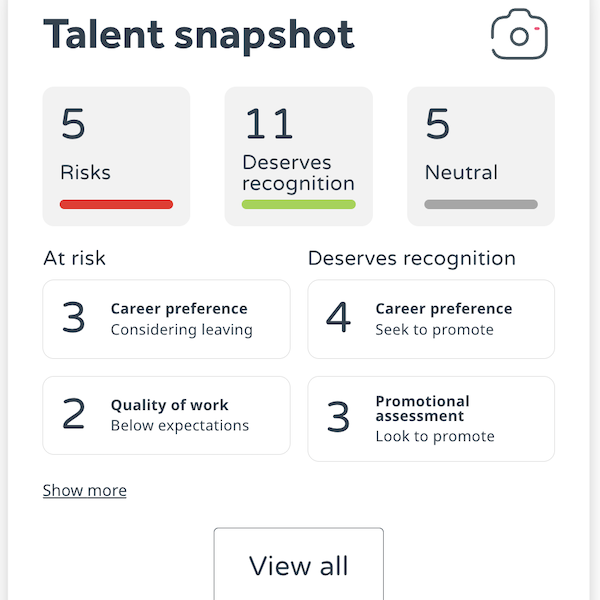Are you concerned about how to keep staff happy during these uncertain times?
In this week’s article, we explain how flexibility, a mental health at work plan and developing a listening culture can help.
Anxiety levels are high
Change, disruption and uncertainty are uncomfortable at the best of times, but Covid-19 has ramped up the uncertainty dial.
Amidst the global pandemic, people are concerned about catching the virus, worried about the health of loved ones, dealing with additional childcare responsibilities and they don’t know how safe their jobs are. Working from home has created feelings of isolation and loneliness for some and there is a lot of financial worry. Dramatic lockdown measures have plunged us into recession. Many who were furloughed still don’t know if they have a job to go back to.
A study of global employees found a decline in mental health in nearly 42% of respondents since the pandemic began. Many people are suffering from depression, burnout, trauma and even PTSD. Anxiety levels are high.
42% of people in a study of global employees report a decline in mental health during the pandemic
Post lockdown, as businesses begin a phased return to some kind of new normal, it will be up to leaders to project a sense of confidence and calm.
Keeping staff happy in such uncertain times won’t be easy, but is essential for business success.
The impact of uncertainty
Prolonged uncertainty takes a toll and is a major contributor to stress. We know that feeling stressed has physiological effects on the body from increased heart rate to hormone surges. This response is beneficial for short periods when we are under pressure to perform or in danger. It puts us on high alert and enables us to react quickly and appropriately. But over prolonged periods stress becomes chronic, and that poses a health risk.
It’s an established fact that stressed out employees are less productive. Stressed employees exhibit 60 per cent more absenteeism and are significantly less effective at work.
Stress leads to 60% more absenteeism
A period of listening, coaching and flexibility will be key as businesses bring staff back into the workplace. Understanding is key.
Why understanding is essential
Keeping a business running smoothly through a crisis is no easy feat. In such unprecedented circumstances, smart leaders will be trying to understand what is feeding uncertainty in employees and finding ways to mitigate its impact.
There has never been a more apt time than now for employers to consider the benefits of using an employee survey. Understanding how individuals are feeling about a return to the workplace will enable savvy employers to respond fast to any issues and ensure people can feel safe and happy at work, a vital component of employee engagement, productivity and business success.
The key to staff happiness in uncertain times
Bob Marley had the reassuring words:
“Don’t worry ‘bout a thing,
‘Cause every little thing gonna be all right!”
But people do worry in times of uncertainty – and negative emotions, such as worry, affect wellbeing.
It is incumbent upon managers to alleviate the worry and stress that employees face during imposed remote working. Two-way communication is vital. Employees need to feel involved and reassured that their job is safe. And now more than ever they need to feel listened to.
Watch for the signs of poor mental health
Listening is not always as easy as you might think. People say what they think people want to hear. If someone is struggling, they might not want their boss to know.
Rather than ask for help, many people will try and hide their worries and concerns. In an uncertain job market, the fear is that admitting you are finding things tough will be seen as an admission that you are not up to the job.
How can you spot if someone needs help or reassurance? In such challenging times, people can resort to unhealthy behaviours, such as eating unhealthy foods and drinking too much alcohol.
It is possible that you may be able to pick up on worrying signs.
But the most effective way to understand the mental health of an employee is to really listen. And for someone to open up they need to feel safe and have trust in you. They need to know that you are offering to help, rather than judging if they are good enough for the job.
Earn your employees ‘trust
While everything about work maybe in flux, how you earn trust from your employees is exactly the same as it was before Covid-19. Regular empathetic conversations are essential to earn the trust of your employees and show them you care.
To gain trust you must be honest and transparent in your conversations, avoid over-promising and be consistent in your message. You can be true to your word and guarantee that any conversations are in confidence. In uncertain times, you can’t necessarily offer guarantees of long-term employment, but you can be straightforward and truthful.
Trust has to be gained – and it is in your power to be a person of principle and integrity.
Instigate a mental health at work action plan
Changes in working patterns and a rise of e-presenteeism brought on by the pandemic is leading to increased risk of employee mental health issues, says a report published by People Management.
Only by understanding that people respond to uncertainty in many different ways can leaders work to offer adequate individualised support.
Mind offers a free Wellness Action Plan (WAP) which is a step-by-step guide to setting up individual strategies to spot the signs of poor mental health.
By sitting down with an individual employee, you can go through the WAP questionnaire to establish:
- Approaches the individual can adopt to support their mental wellbeing
- Early warning signs of poor mental health to look out for
- Any workplace triggers for poor mental health or stress
- Potential impact of poor mental health on performance
- What support they need from you as their manager
Additionally, WeThrive’s employee engagement survey will give you an in-depth understanding of the needs and thoughts of your employees, as well as the tools to make a difference.
Offer flexibility and give employees a sense of control
Finally, don’t forget to look after your team when the time comes to return to the office or workplace. Forcing employees back to the workplace when they are feeling anxious about their safety will almost certainly impact performance and productivity.
Employees need reassurance and in these unprecedented times, some sense of control will have a hugely beneficial effect. Involve them in the process and listen to their concerns and needs.
To keep staff happy, listening to your employees is vital if they are working from home or preparing to return to the workplace. But the importance of listening is not just for times of uncertainty. Listening is a vital tool for managers in every circumstance.
About WeThrive
Employee Engagement, Evolved
WeThrive is the agile employee engagement platform that uncovers how your people truly feel, enabling managers to create highly effective teams, increase employee retention and employee wellbeing and deliver better business results.




